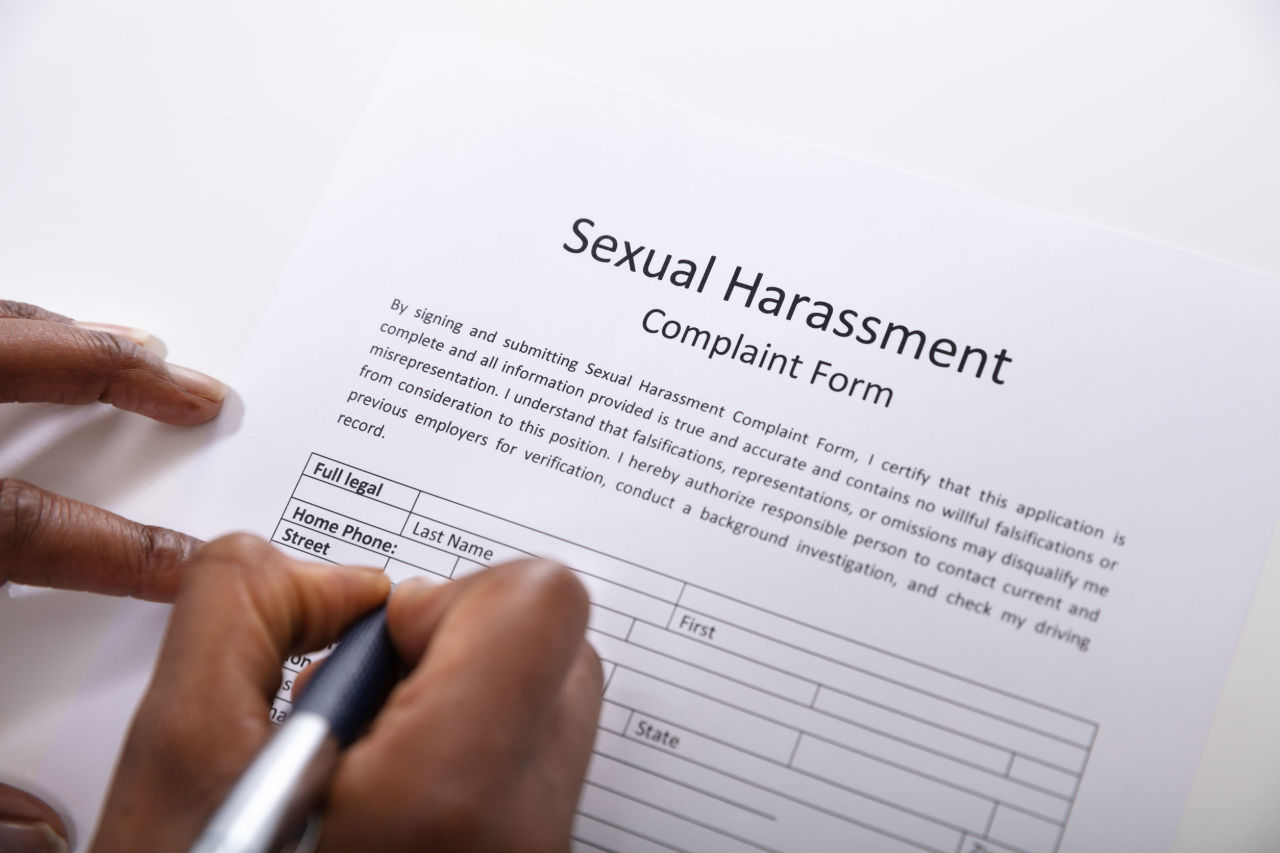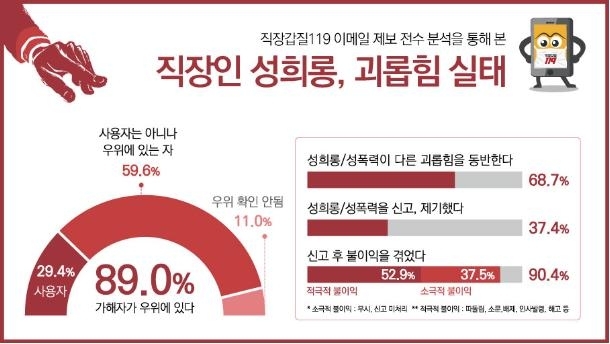9 in 10 workplace sexual harassment victims experience retaliation: study
By Ock Hyun-juPublished : Feb. 1, 2021 - 16:08

Only 4 in 10 victims who experienced sexual harassment at work came
forward, a recent study showed. And of those who did, 9 out of 10 suffered retaliatory actions such as bullying or dismissal.
Workplace Abuse 119 (Jikjang Gapjil 119), a nongovernmental organization, published an analysis on Sunday of the 364 sexual harassment reports it had received since November 2017.
Among the sexual harassment victims who turned to the organization for help, 136 people, or 37.4 percent, filed formal complaints or officially raised the issue at their workplaces, according to the analysis.
Most of the sexual harassment was committed by those in positions of power, making it harder for victims to take action for fear of retaliation or of being disadvantaged in the workplace.
According to the analysis, the perpetrators were in higher positions than the victims in 89 percent of all the cases reported. In 3 out of 10 cases, employers were the assailants.
forward, a recent study showed. And of those who did, 9 out of 10 suffered retaliatory actions such as bullying or dismissal.
Workplace Abuse 119 (Jikjang Gapjil 119), a nongovernmental organization, published an analysis on Sunday of the 364 sexual harassment reports it had received since November 2017.
Among the sexual harassment victims who turned to the organization for help, 136 people, or 37.4 percent, filed formal complaints or officially raised the issue at their workplaces, according to the analysis.
Most of the sexual harassment was committed by those in positions of power, making it harder for victims to take action for fear of retaliation or of being disadvantaged in the workplace.
According to the analysis, the perpetrators were in higher positions than the victims in 89 percent of all the cases reported. In 3 out of 10 cases, employers were the assailants.

Among those who came forward as victims, 90.4 percent suffered secondary damage. Nearly 53 percent were bullied, excluded, dismissed, transferred or became the subject of rumors, while 37.5 percent saw their complaints ignored.
Of the victims, 83.2 percent were women.
Some 69 percent of the victims said they had suffered from other forms of harassment while also being sexually harassed.
“Sexual harassment at workplaces does not happen by accident based on a private relationship between an assailant and victim. It is also not because victims did something wrong,” said lawyer Yoon Ji-young, one of those who conducted the analysis.
The lawyer put the blame on those abusing workplace authority, undemocratic and unequal relations between employers and workers, companies that refuse to guarantee labor rights and the government that turns a blind eye to all these problems.
To tackle work-related sexual harassment, the organization called for “democratizing” workplaces and rooting out discrimination based on employment type.
The organization suggested that the government more proactively interpret and implement relevant laws, and improve laws and institutions to expand the scope of who is considered a victim or a perpetrator.
It also underscored the need for employers to take more responsibility for preventing sexual harassment.
By Ock Hyun-ju (laeticia.ock@heraldcorp.com)
-
Articles by Ock Hyun-ju


















![[KH Explains] Hyundai's full hybrid edge to pay off amid slow transition to pure EVs](http://res.heraldm.com/phpwas/restmb_idxmake.php?idx=652&simg=/content/image/2024/04/18/20240418050645_0.jpg&u=20240419100350)

